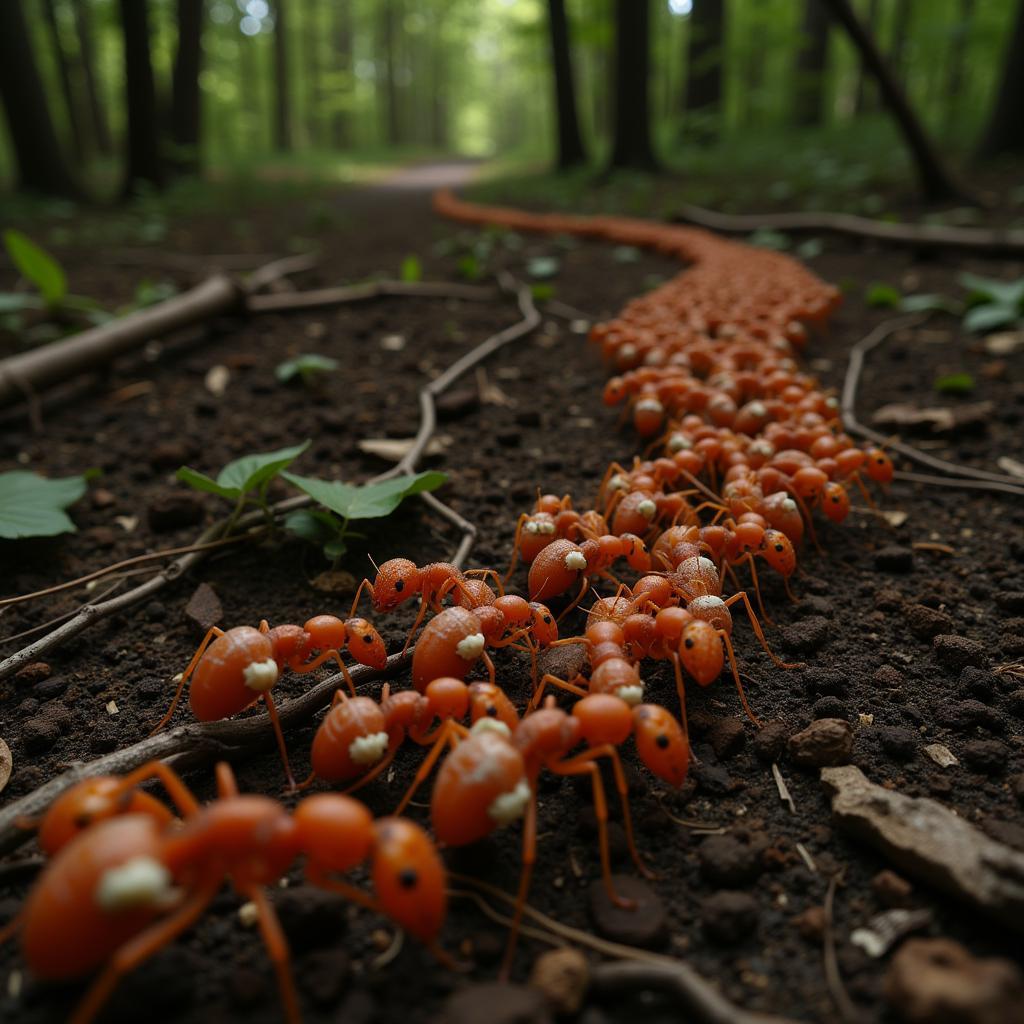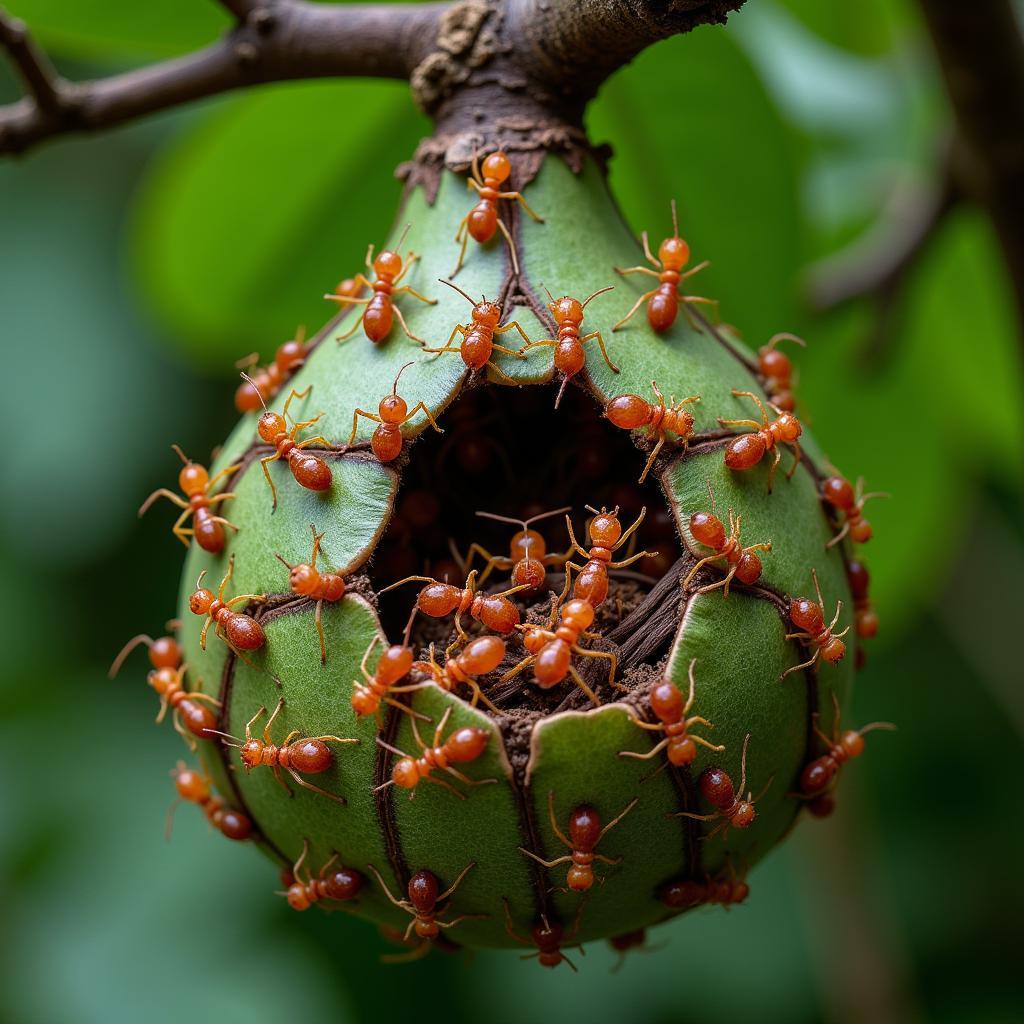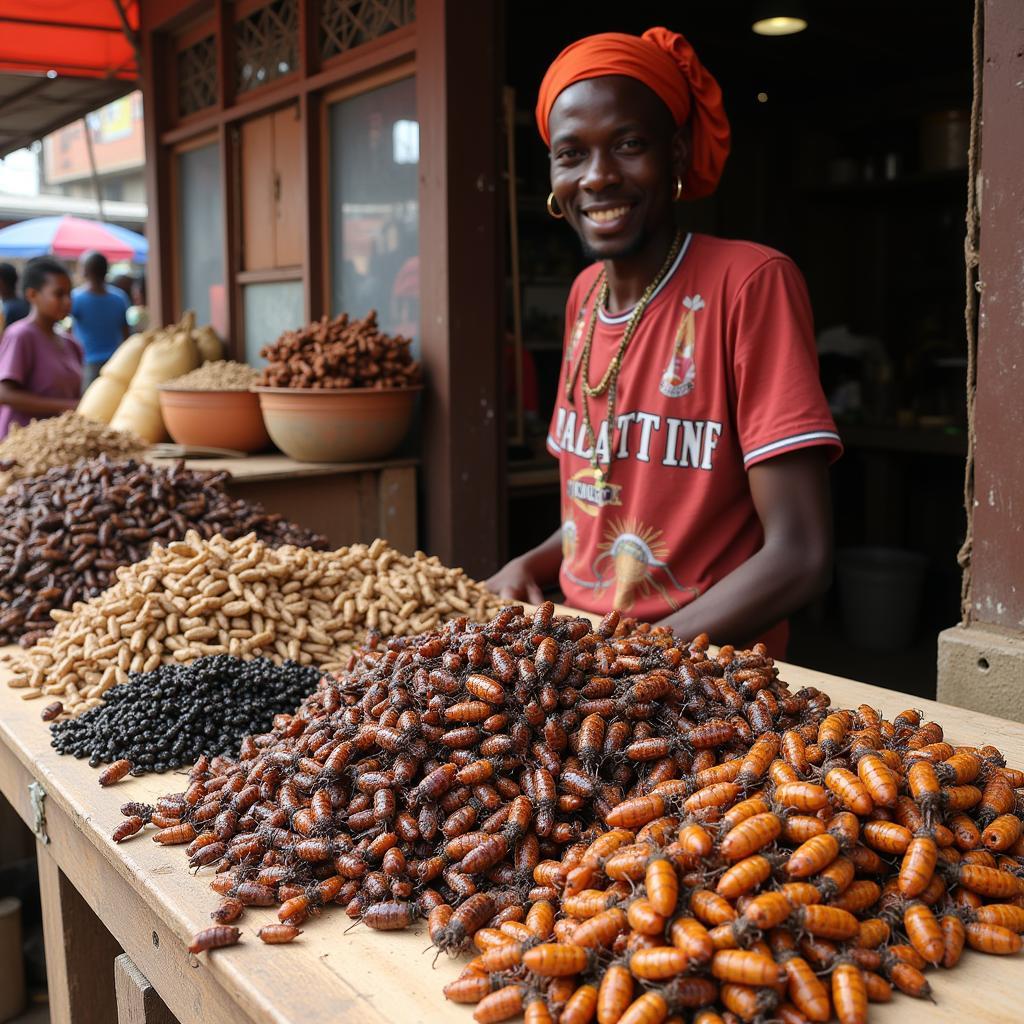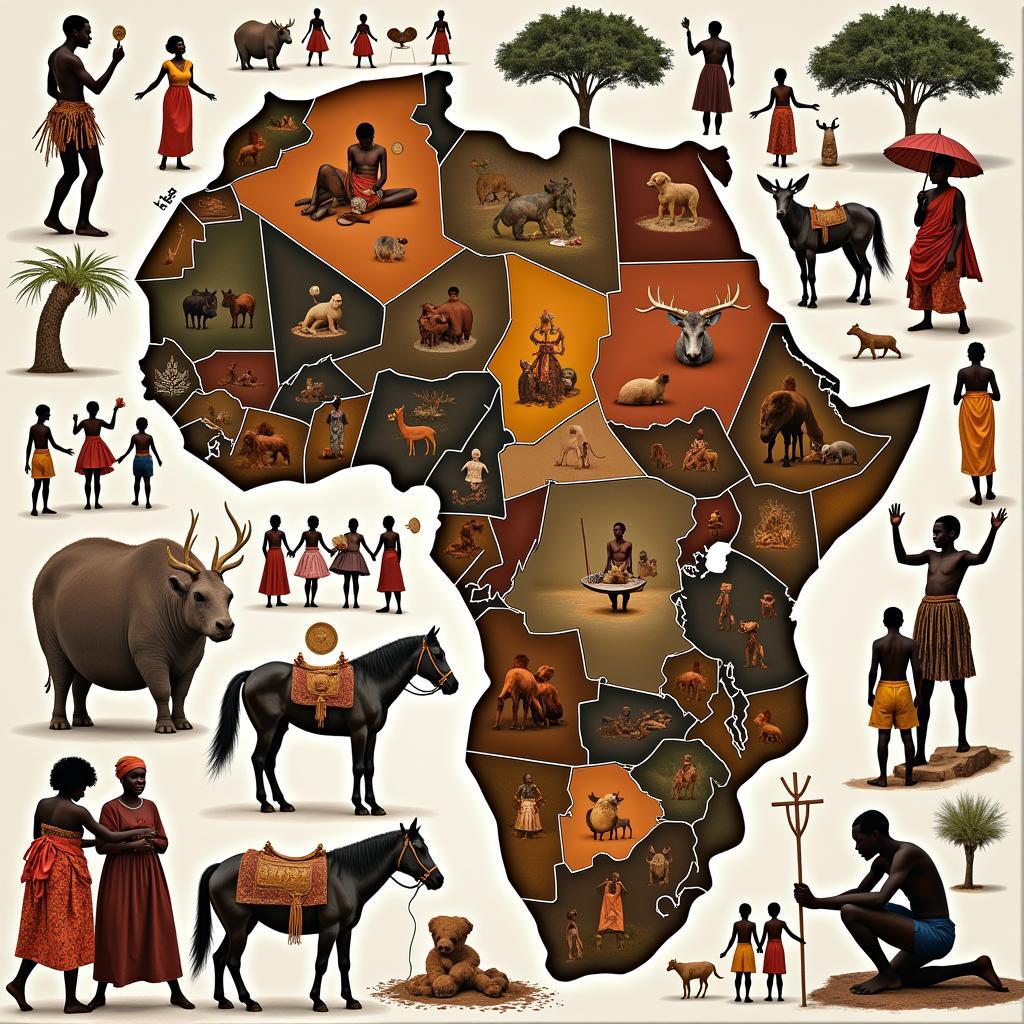African Ants: Tiny Titans of the Savanna
African Ants are a ubiquitous sight, their intricate trails crisscrossing the savanna like living arteries. These tiny creatures, far from being mere insects, play a crucial role in the delicate balance of the African ecosystem. Their diversity is astounding, their social structures complex, and their impact on the environment profound.
A Myriad of Marvels: Exploring the Diversity of African Ants
Africa is home to an estimated 2,000 ant species, each with its own unique characteristics and ecological niche. From the minuscule pharaoh ants found in homes to the formidable driver ants that strike fear into the hearts of even the largest mammals, the world of African ants is teeming with fascinating adaptations.
Driver Ants: The Nomadic Hordes
 Driver Ants on the Move
Driver Ants on the Move
Perhaps the most iconic of African ants are the driver ants, known for their aggressive foraging behavior and massive nomadic colonies. These ants are true nomads, moving their entire colony, which can number in the millions, every few weeks in search of food. Their raids are a sight to behold, a relentless wave of ants engulfing and devouring any insect or small animal unfortunate enough to be caught in their path. Interestingly, driver ants have even been known to kill elephants, not by sheer force, but by targeting their vulnerable trunks and eyes. This remarkable feat highlights the power of collective action, even among creatures so small. For more information on how these ants take down such large prey, check out this article: african ants kill elephants.
Weaver Ants: Master Architects of the Canopy
 Weaver Ant Nest in Tree
Weaver Ant Nest in Tree
High above the savanna floor, another fascinating group of ants, the weaver ants, constructs intricate nests in the treetops. These ants are named for their remarkable ability to “weave” leaves together using silk produced by their larvae. The colony works together, pulling leaves into position and using their larvae like living spools of thread to bind them together, creating a secure and weatherproof nest. Weaver ants are fiercely territorial, protecting their host trees from herbivores and competing insects, making them important players in the rainforest ecosystem.
The Crucial Role of African Ants in the Ecosystem
Beyond their fascinating behaviors, African ants play a critical role in maintaining the health and balance of their ecosystems. They are essential decomposers, breaking down dead plant and animal matter, recycling nutrients back into the soil. Their tunneling activities aerate the soil, improving drainage and promoting plant growth.
Seed Dispersers and Ecosystem Engineers
Many African ant species are also important seed dispersers. Plants have evolved ingenious ways to entice ants to carry their seeds away from the parent plant, often by attaching nutrient-rich structures called elaiosomes to the seeds. The ants carry the seeds back to their nests, feeding the elaiosomes to their larvae and discarding the seeds, which are then free to germinate in a new location. This symbiotic relationship benefits both the ants and the plants, ensuring the survival of both species.
African Ants and Human Culture
African ants have long captured the imagination of humans, appearing in folklore, mythology, and even cuisine. In some cultures, driver ants are seen as symbols of strength and unity, while in others, they are feared for their destructive power. Weaver ants are sometimes used in traditional medicine, their nests harvested for their purported medicinal properties.
Edible Insects: A Sustainable Food Source
 African Market with Edible Insects
African Market with Edible Insects
In many parts of Africa, ants, and other insects, are considered a delicacy, a sustainable and nutritious food source. Termites, in particular, are highly prized for their protein content and unique flavor. They are often roasted or fried and eaten as a snack or used as an ingredient in stews and sauces. The consumption of insects, known as entomophagy, is gaining increasing attention globally as a sustainable alternative to traditional protein sources.
The Future of African Ants
As Africa faces increasing environmental challenges, understanding the role of these tiny titans has never been more critical. Climate change, habitat loss, and the introduction of invasive species all threaten the delicate balance of African ecosystems, and with them, the survival of countless ant species. By learning more about these fascinating creatures and working to protect their habitats, we can help ensure that the symphony of life on the African savanna continues to play on.
FAQ: Unveiling the Mysteries of African Ants
1. What is the largest ant species in Africa?
The title of largest ant in Africa goes to the Dorylus wilverthi, a species of driver ant. The queen of this species can reach a staggering 5 centimeters in length!
2. Are all African ants dangerous to humans?
While some species, like driver ants, can deliver a painful bite, the vast majority of African ants are harmless to humans. They play essential roles in the ecosystem and should be appreciated for their contributions.
3. Do ants really eat baby elephants?
While driver ants have been known to target the vulnerable areas of elephants, there is no evidence to suggest they consume baby elephants entirely. However, their attacks can be fatal, particularly to young or injured animals. If you are curious about other potential dangers posed by African ants, you can read more here: african ants eat baby.
4. How do weaver ants make their nests?
Weaver ants create their remarkable nests by pulling leaves together and using silk produced by their larvae to bind them. The colony works together, creating a strong and weatherproof structure. You can learn more about other fascinating creatures, like the giant African land snail, in this article: giant african land snail.
5. Can I eat ants?
Yes, many cultures around the world, including several in Africa, consume ants and other insects as a sustainable and nutritious food source. Termites, in particular, are highly prized for their protein content.
Delve Deeper into the World of African Ants
- Explore the fascinating world of African ants further with resources from reputable organizations like the African Conservation Foundation and the International Union for Conservation of Nature (IUCN).
- Learn about the cultural significance of ants in different African societies through ethnographic studies and anthropological research.
- Discover the potential of entomophagy and the role of insects as a sustainable food source in a changing world.
Need Help? For more information or assistance, please contact us:
Phone: +255768904061
Email: kaka.mag@gmail.com
Address: Mbarali DC Mawindi, Kangaga, Tanzania
Our dedicated customer support team is available 24/7 to assist you.


